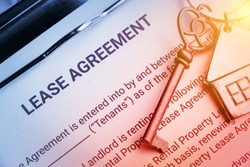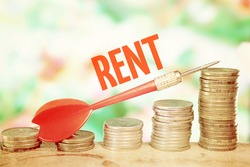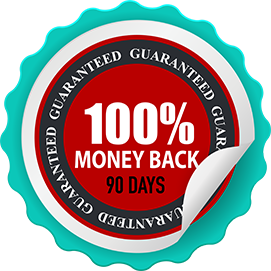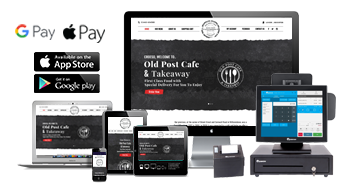Lease Factor is one of the most important factors to look into if you’re starting a Restaurant Business. A lease is a contract outlining the terms under which one party agrees to rent property owned by another party. It guarantees the lessee, also known as the tenant, use of an asset and guarantees the lessor, the property owner or landlord, regular payments for a specified period in exchange.

A starting Restaurant owner should weigh the advantages and disadvantages of buying their own space and leasing property. One of the main advantages of leasing is that you’ll save enough money to support your cash flow especially since you’re just starting your own restaurant.
You also have to keep in mind that most of the locations that show high demand and high foot traffic are usually for lease. Here are the Lease Factors you need to check before you start your restaurant business:
10 Basic Lease Factors
- Lease Terms
This lease factor is the amount of time a restaurant owner is leasing the location. It also includes the options for renewal of the lease agreement. For example, you agreed with a 5+5 lease term. This gives you a fixed term for 5 years plus the option to renew after 5 years.

It is important to know this so that you can budget and check your costs for renovations. Make sure that the term you’ll sign will recoup the investment you’re willing to make to the unit, plus the profit you’ll gain within the term. You should consider the type of restaurant business you’re trying to build before you commit to a specific lease term.
Another factor that adds up on why it is important to check the lease term on a lease agreement is the cost of moving and disruption in business. If there are no options for renewal or if your lease is too short, there will be a need for you to move and that would definitely hurt your budget and capital.
- Rent Increase
Lease Agreements may also include an annual rent increase. This comes in monetary or percentage value. It is the year over year increase in your rent, that’s why it is crucial to know and negotiate this lease factor.

One thing to consider for starting restaurant owners is that they have to be careful with percentage increase, as it may look deceiving. Usually a percentage increase value is at 2% – 3% increase, this looks like a small amount but a 3% top to 3% top to 3% over years will most likely have an impact on your revenue.
- Renovation Subsidies
This lease factor is the subsidy that’s being given by the landlord for renovation. In reality, landlords won’t risk spending money for renovations, for building a good ventilation, a washroom, and other basic needs for a restaurant business. This is the main reason why they are ready to give subsidies for this factor.

It mainly adds up to their advantage as they will be the one who will gain benefits from the modifications you did should your lease term ends. As a restaurant owner and a tenant, you should not be afraid to ask for this subsidy.
But before going all out with the renovations, it is also important to check if there are restrictions for modifications. Know if you’ll be needed to return the place in its original form after your lease term.
- Free Rent
Yes, you read it right. This is something a tenant can ask and negotiate with your landlord. This lease factor is quite taken for granted, but especially this pandemic season, landlords need security for their units.

Remember that these landlords would opt to give a better deal and free rent rather than having their spaces empty. They are still obligated to pay monthly mortgage and they will need tenants to sustain this.
- Average Foot Traffic
This is the number of people walking around the area on a daily or monthly basis. This lease factor is not usually given by the landlords, but you can do your own research. Knowing the foot traffic in a specific unit and area would give the impression to your landlord that you know your stuff. That you have enough knowledge and the proper matrix to compare the location to other locations.

This gives the restaurant owners more negotiating powers especially with rental rates.
- Competition
As a restaurant owner, knowing the numbers of your direct competitors in the area is a must. You must ask and negotiate with your landlord, about this lease factor, if you can monopolize the type of product you’re offering. If they are willing to offer the same area to a direct competitor, you may have to rethink your options. It is important to have a contract of exclusivity and on until what scope this contract offers.
- Timeframe
Knowing how long the specific space is empty or out for lease is one important lease factor to check. A restaurant owner can use this lease factor as a negotiation power to their landlord.
There’s a great chance that a space that’s out for lease for a long time would lead to better deals with the landlord as they would be willing to rent the space as soon as possible.
- Price per Square Foot
Cheaper price doesn’t always mean that it’s the best deal there is. It is important to check and calculate this lease factor for you, as a restaurant owner, to compare with other locations you’ve checked.
There are many factors that affect the price of a unit, one of the main is the average foot traffic. This means the amount of exposure that business will get with that particular area thus adding a potential sales and more revenue.
- Special Levy
This lease factor is the additional expense you need to pay your landlord on a monthly or annual basis. It could be about marketing expenses, promotional expenses, or seasonal expenses.
It is vital to know these lease factors for you to not be caught off guard with these expenses and for you to prepare and budget your revenue better.
- Commission to the landlord
Now this lease factor is usually given to those located to super high demand areas. This is a special levy you need to pay placed on your revenue when your restaurant business hit a certain amount.

For example, if your restaurant reached £50,000 in a month, all additional money is now subject to a certain percentage of commission. Knowing this lease factor would avoid you to have mishaps with your revenue and budget.
Having enough knowledge with these different lease factors would be helpful and useful for every starting restaurant owner. But keep in mind that it is advisable to ask an expert to review the lease agreement and the lease factors before entering into a contract. For example, the Uber restaurant hub can be an issue.
Knowing which and how to negotiate these lease factors would help you position yourself into success and operate a restaurant business that would work for you.








